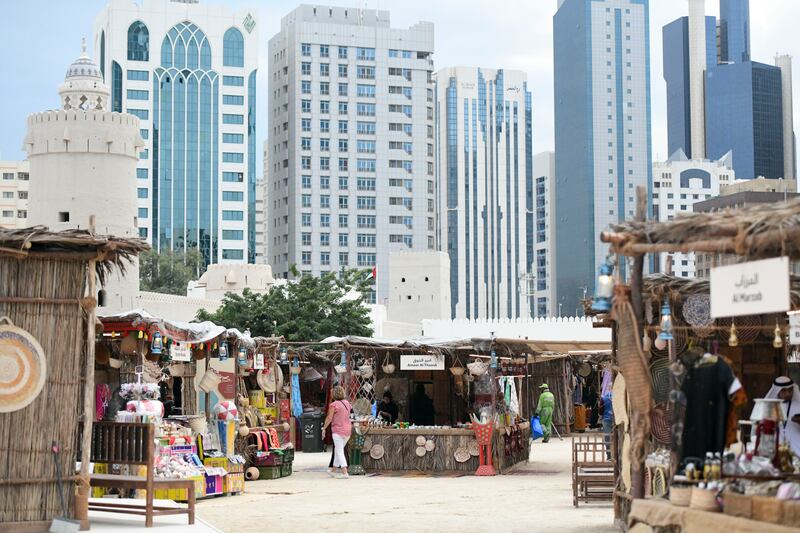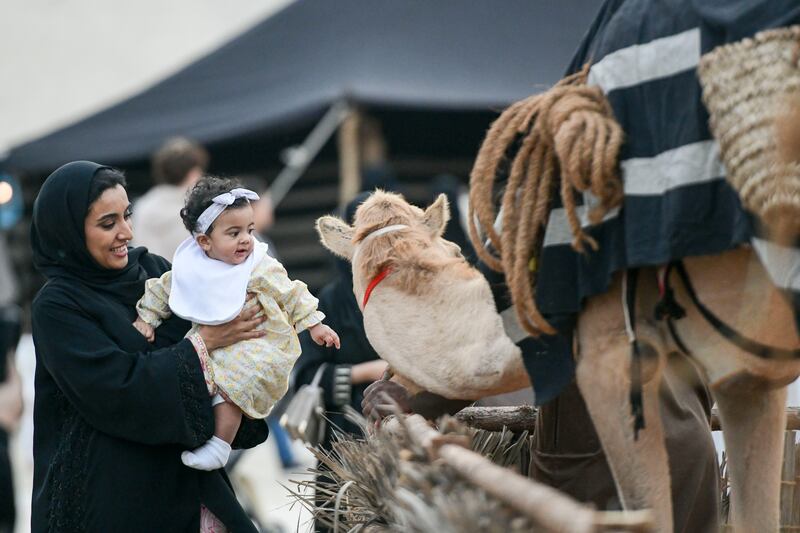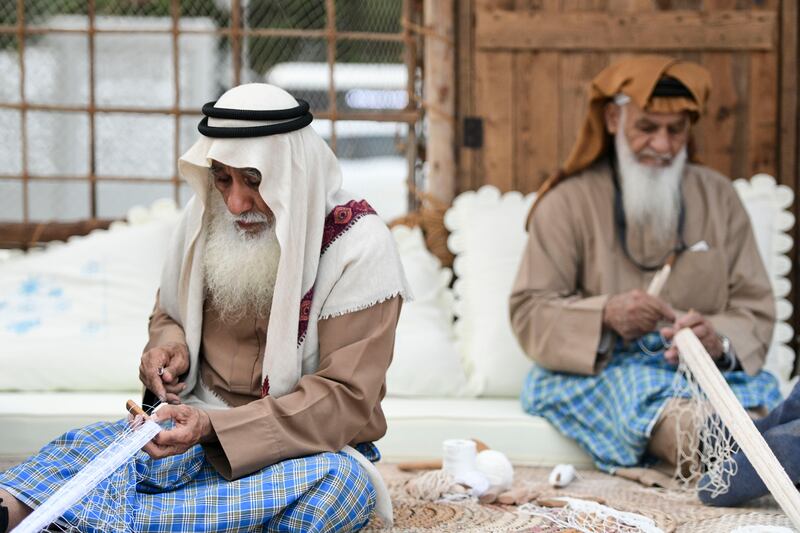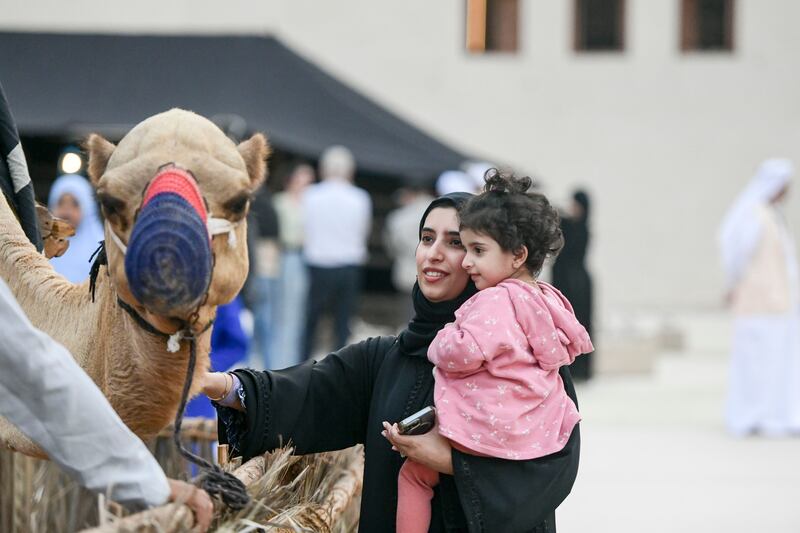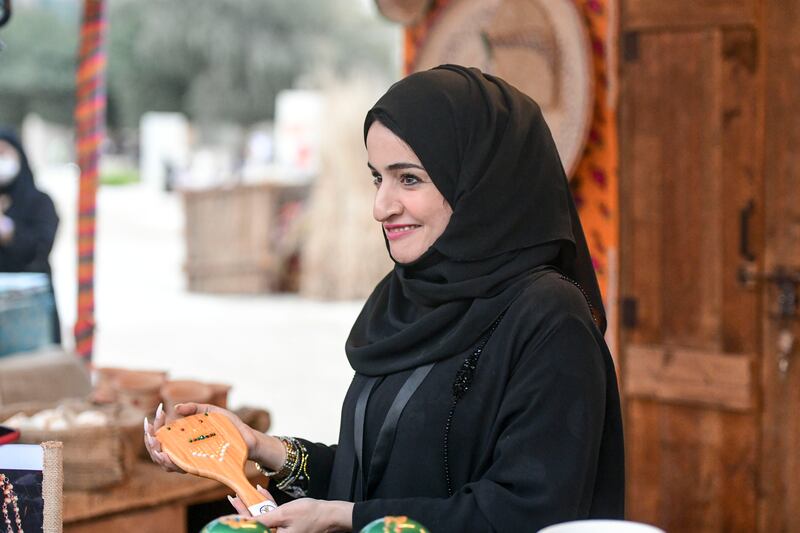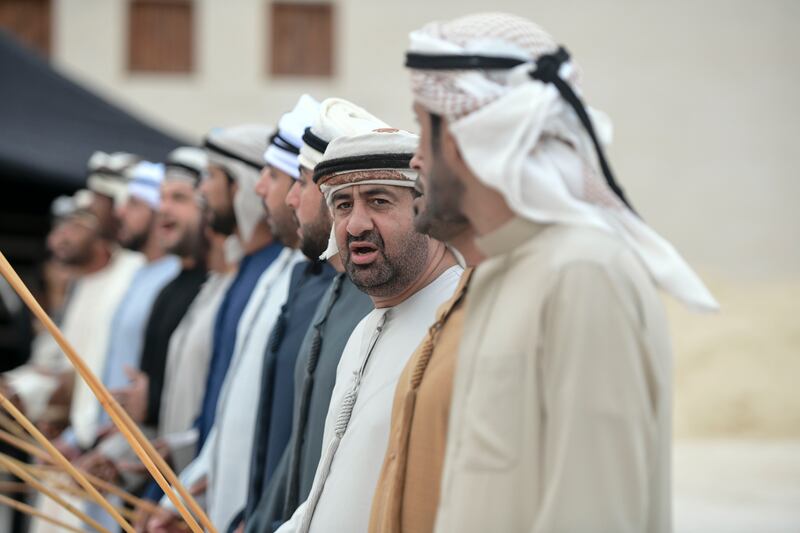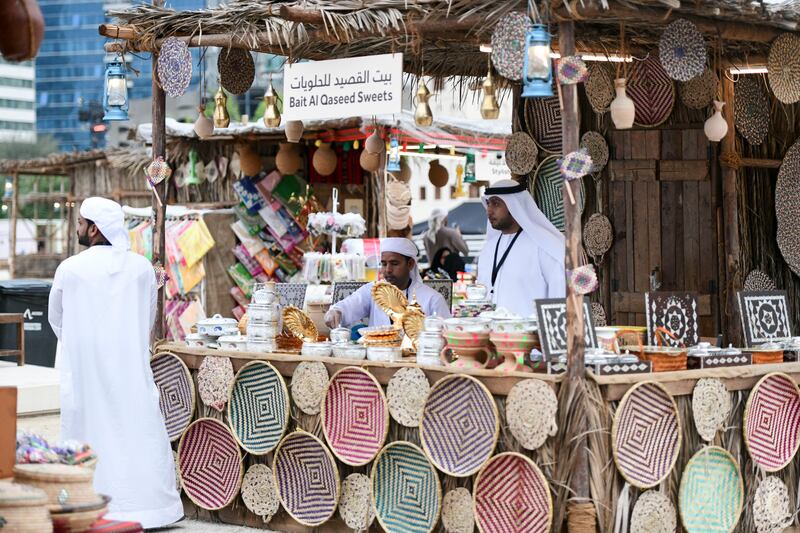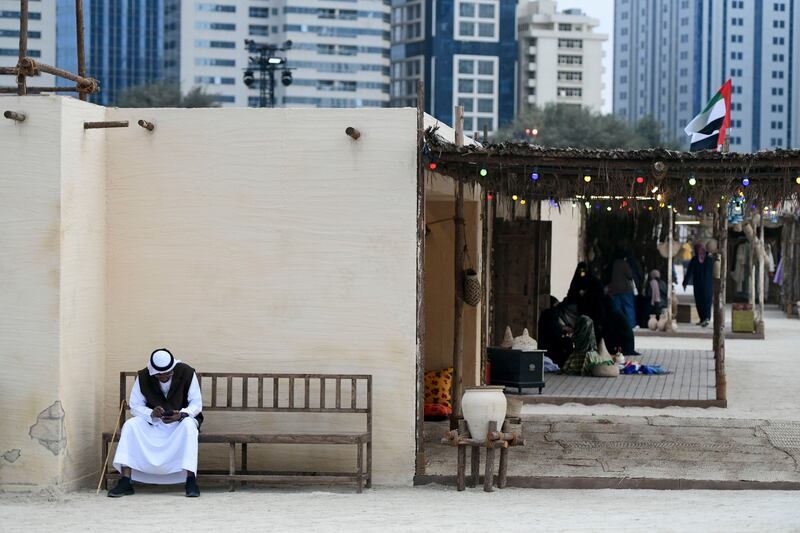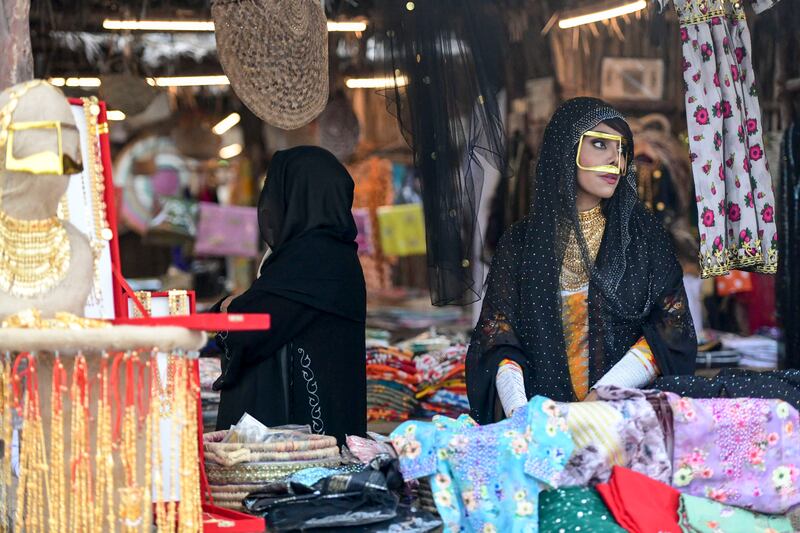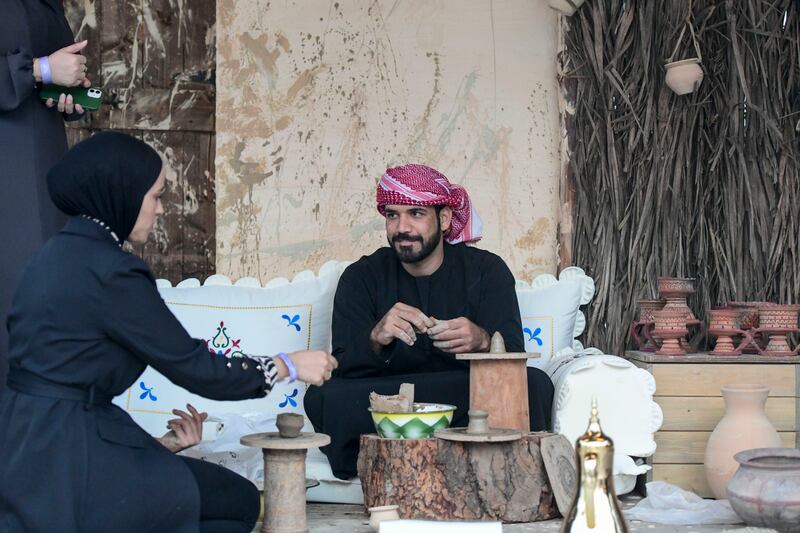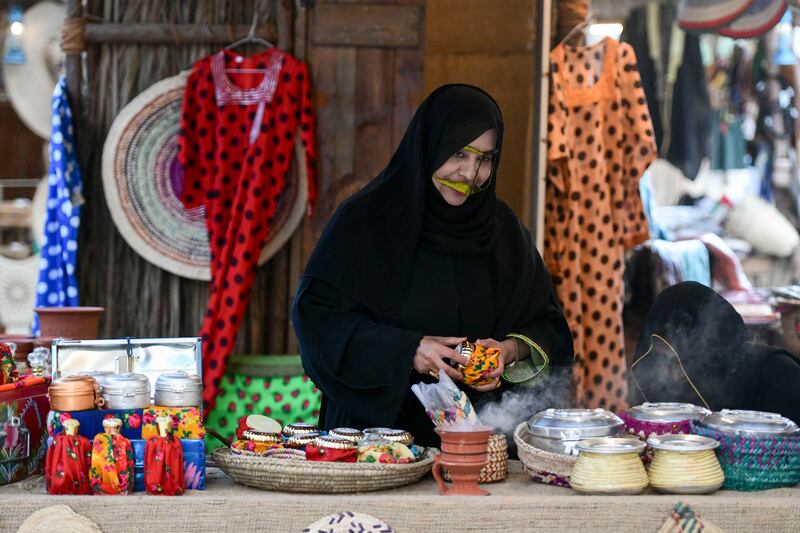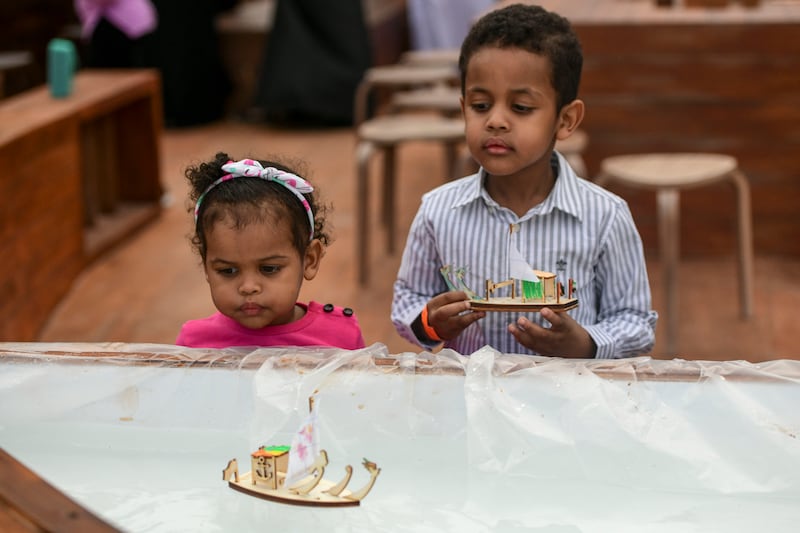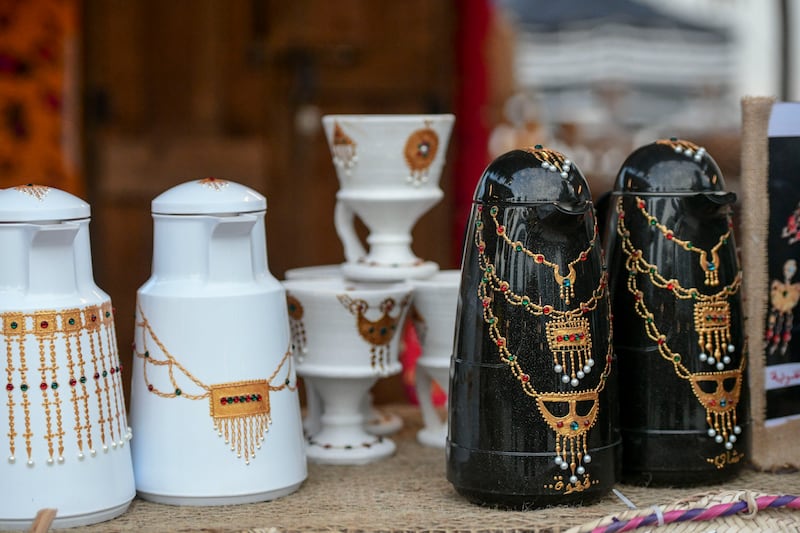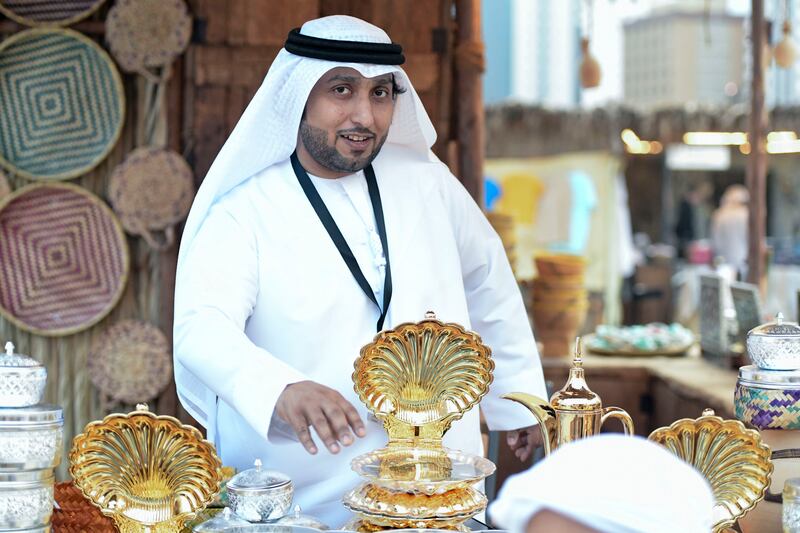Al Hosn Festival is returning to its historic eponymous venue this week. The event will reprise its recreation of a traditional village to celebrate the different components of Emirati heritage, from preparations in welcoming a newborn to making harees.
The annual festival is organised by Department of Culture and Tourism – Abu Dhabi. It is taking place until January 28 at Al Hosn District, the outdoor open space beside Qasr Al Hosn.
“Al Hosn Festival is Abu Dhabi’s flagship heritage platform that advances our mission to showcase Emirati cultural heritage and cultural creativity,” said Mohamed Khalifa Al Mubarak, chairman of DCT Abu Dhabi.
“The festival is curated by focusing on educational and informative tools that allow visitors to immerse themselves in our cultural practices. There is an opportunity to discover how our heritage informs our modern lives, exploring the ways it is reinterpreted by the UAE’s talented artisans, artists and creative minds.”
From live performances and workshops to a traditional souq, here are nine things to look out for at this year's Al Hosn Festival.
Al Freej
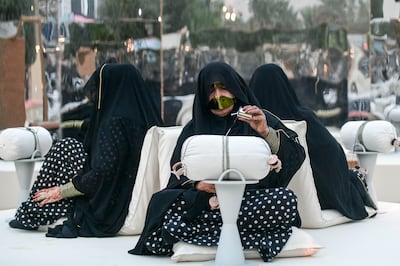
One of the hallmarks of Al Hosn Festival is how it gives visitors the chance to experience a traditional UAE village. Emirati Arabic for neighbourhood, Al Freej gives visitors the chance to delve into the intricacies of local craft and culture.
Old alleys branch off into booths that demonstrate incense-making, henna, talli, sadu, blacksmithing, pottery, palm weaving as well as how gargoor, fish traps and nets, are constructed. There is also a souq component, with dukkans selling traditional goods and foods.
Desert animals
An area within the festival will be dedicated to the companion animals that helped those living in the UAE before its modernisation overcome the challenges of the desert environment. Visitors will have the chance to interact with animals, such as falcons and Saluki dogs, to discover how they were pivotal to everyday life in traditional Emirati culture.
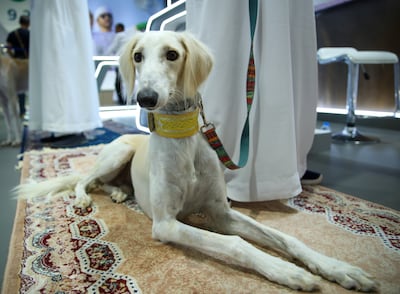
Camel Ezba, a dedicated area for the animals, will show how indispensable they are to Bedouin culture. The section will teach visitors how herders care for camels, as well as explore feeding, milking and riding. It will also touch on Al Hedaa, the camel-calling tradition that has been named by Unesco as an intangible cultural heritage.
Al Ain Zoo will also have a special section, where zookeepers will be ready to elaborate on the different species that populate the local environment.
Shallah
The festival’s Majlis Al Shallah will celebrate the diversity of Emirati oral traditions. The Shallah art form encompasses expressions that touch upon everything from interpersonal relationships to nuances of navigating within the desert. There will be live performances of several genres of Shallah, including Al Taghrooda, an improvised form of poetry devised by camel riders as a way to pass the time, as well as Al Wanna, which expresses feelings of longing and sadness.
Welcoming a newborn
One component of the festival is a traditional Emirati home that highlights architectural elements, interiors and customs. Visitors can watch social practices unfold, including preparations to welcome a newborn into the village and the festivities that take place afterwards.
Making harees
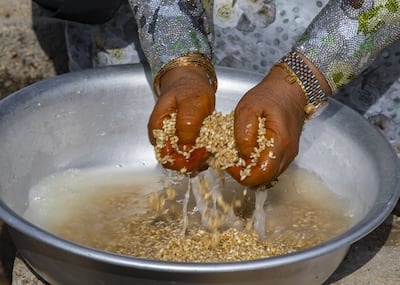
The festival presents a unique opportunity to savour traditional Emirati flavours. While favourites such as ragag and luqaimat will probably be available, the harees is the centrepiece of The Kitchen. The wheat or burgul-based meal, which is often mixed with meat and seasoned, was added to Unesco’s Intangible Cultural Heritage List last year.
Especially popular during Ramadan, the dish has variations across the Middle East. The festival will, of course, highlight the local take. Harees is served during important social events such as weddings and prepared in large quantities. The dish is also mentioned in folk stories, proverbs and poetry.
A Farmer’s Market will also be held near The Kitchen area, offering dates, spices and halwa, so you can try your hand at making traditional recipes at home.
Henna
The House of Artisans will explore the cultural significance of henna. Visitors will be able to learn more about the ingredients that go into making the dye as well as the artistry involved in the various patterns. Demonstrations will also be held that will dive into classic designs, including Al Rowayeb, along with more modern, geometric patterns.
Makers Space
Makers Space: Emirati Home Edition will bring together antique dealers with contemporary furniture designers, all of whom will display their take on traditional Emirati living. The section is an indirect exploration of how Emirati homes have evolved throughout the years, and how traditional architectural elements have been rethought in the modern era.
Beit Beit
There will be a special programme dedicated to children at Beit Beit, which is organised by the Abu Dhabi Children’s Library. Exploring how children played and passed the time before technology proliferated in the modern era, the section will include a pillow fort area, toy shop and vintage doll exhibition, as well as the making of dolls and dollhouses.
Live performances
Besides demonstrations of traditional dances and poetry, Al Hosn Festival will also offer a platform to several local talents. The programme will include performances by the 2024 musician cohort of Mawhibaty, an initiative that helps schoolchildren bolster their creativity across a range of media, from graphic design and music to calligraphy.
More information available at abudhabiculture.ae. Tickets to the event are Dh15 for children between five and 11; Dh30 for adults
